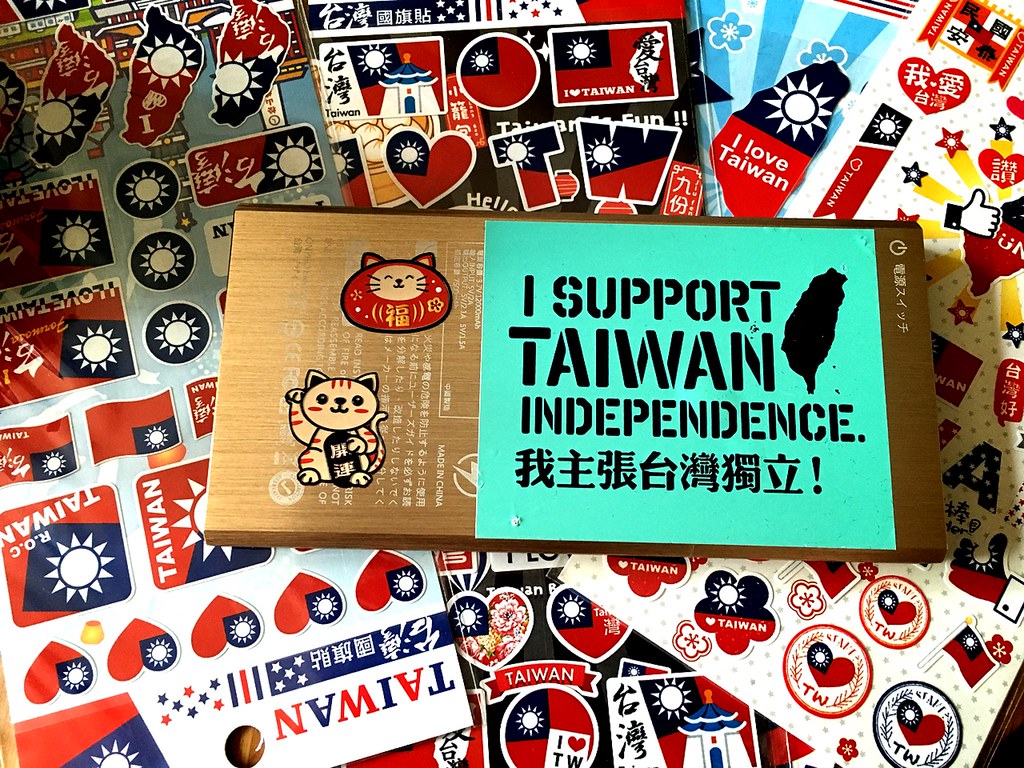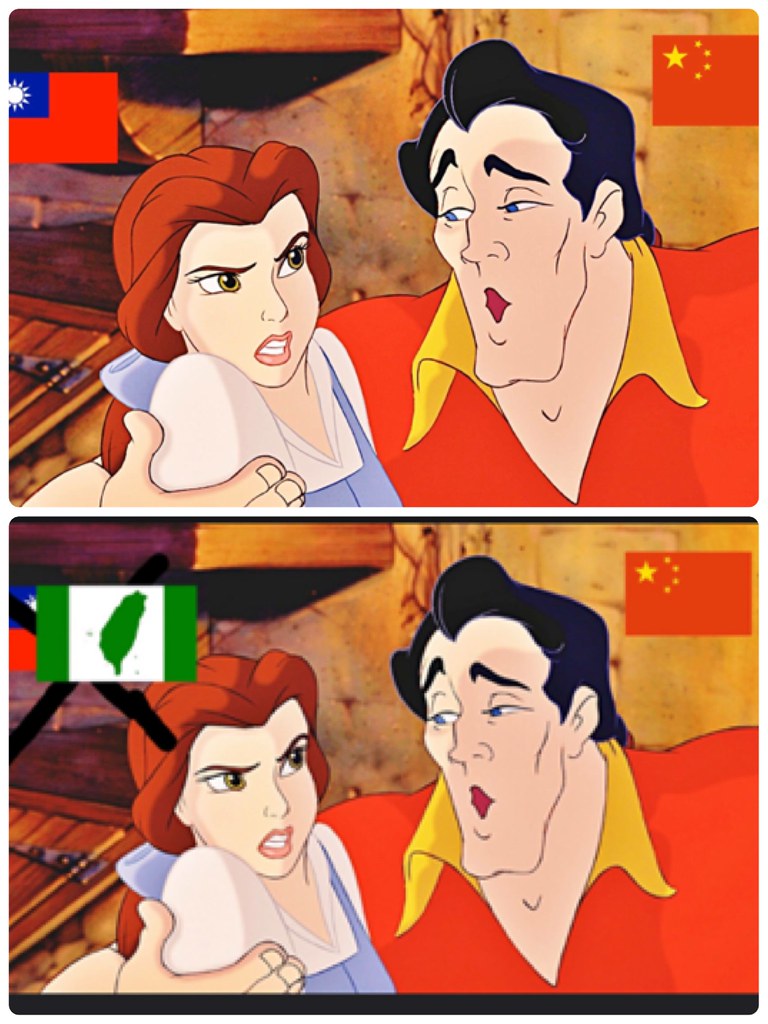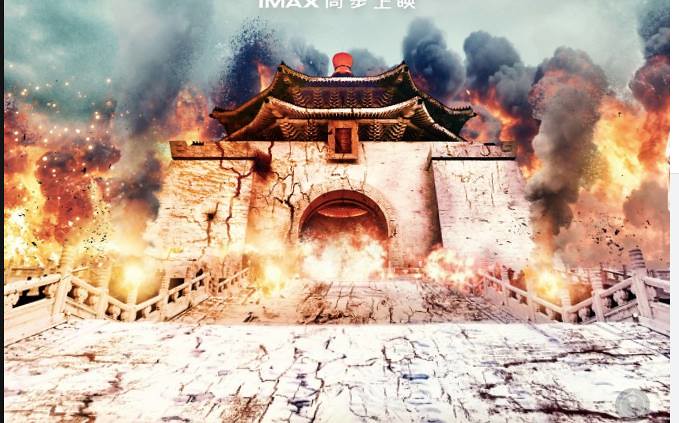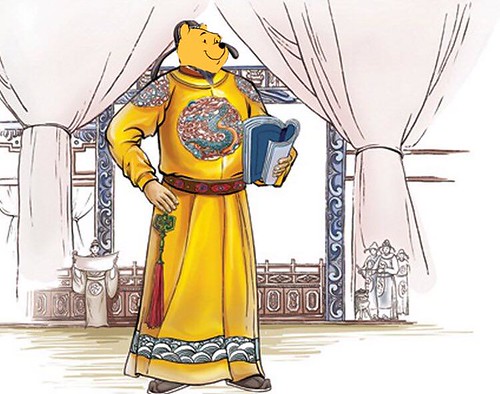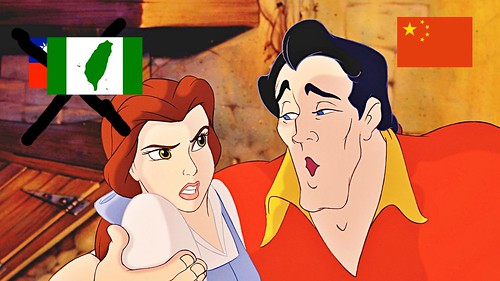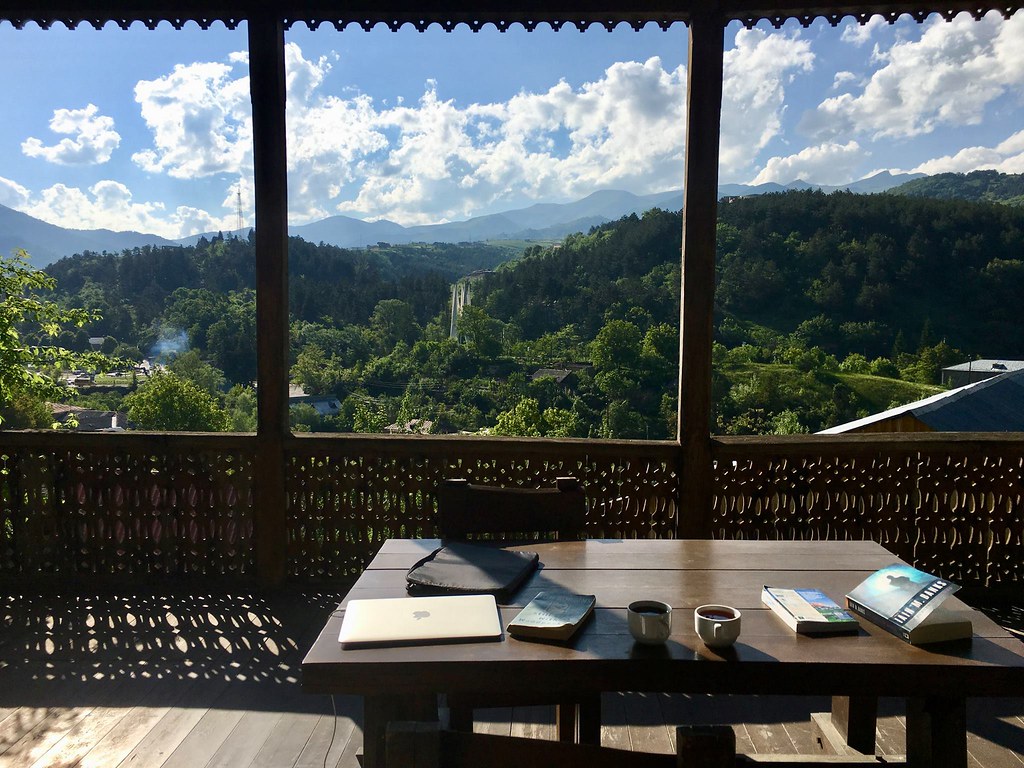 |
| Westerners pushing into Asia is not always a great idea - just ask this guy. (But when it comes to East Asia, I'd rather have the US around than China.) |
I'm aiming for this to be the final set of ideas that I express in this series of posts (though you never know). In the previous two posts I took aim at Taiwan's domestic issues and the state of Taiwan advocacy - this time, I want to shift my focus to other Westerners.
I've had a few friends and Facebook people say things which have caused me to worry about the relationship between Western liberals: that no matter how bad the threat from China is, Taiwan must find a solution that doesn't involve the United States because we're evil; surprise that China even wants to be the next global superpower; that seeking the best possible realistic solution for Taiwan amounts to being pro-right wing or pro-Trump; that saying continued US influence in Asia is the only realistic way to counter China is "dangerous propaganda"; that Taiwan being annexed by China is actually preferable to its having close ties to the US because "the culture and history is the same".
All of these (wrong-headed) statements carry an implication that advocating for any realistic solution that contains Chinese influence in Asia (especially vis-a-vis Taiwan) amounts to being pro-USA.
This is one pushback that doesn't seem to have been mentioned in critical essays on China's United Front efforts. Michael Turton wrote an excellent piece on weaponized narratives for American Citizens for Taiwan, of which I have no criticism. In it, he describes the ways in which China supporters tries to twist narratives to make those who criticize the Chinese government's actions seem ignorant, uncivil, hysterical or racist. Some of these notions were echoed more recently in The Monthly:
Relentlessly, and through a thousand different channels, the Party was working to collapse the categories of “Chinese Communist Party”, “China” and “the Chinese people” into a single organic whole – until the point where the Party could be dropped from polite conversation altogether. From there, the Party’s critics could be readily caricatured as “anti-China”, “racist” or even “Sinophobic”.
But, I have to say, I'm not afraid of being seen in these ways. No real person (leaving aside the fifty-cent trolls) would look at what I have to say and declare that I am "ignorant" of China or the region. I'm not an academic in this field, so I'm not worried about incivility. Hysterical - well, yes, okay, my criticisms of Chinese government actions are numerous. However, when I point out that I live in a sovereign democracy that China has openly said they intend to annex by force, most reasonable people do understand that the threat to my home is very real, and it is not hysterical to point this out. I've had "racist!" leveled at me a few times - but any reasonable person will note that I live in and advocate for an Asian nation, not a majority-white one.
No - what I'm afraid of instead is being labeled "pro-America" or "pro-Western imperialist".
That is a difficult one to fight, because a strong case for Taiwan does tend to include a case for liberal values, and an argument against attempts to eradicate and replace them with what China might call "Asian values" but I call "authoritarian, pro-oppression, anti-human rights" fascism. However, it's hard to make that case without sounding too much like a booster for the West as a whole and the US in particular.
Liberal values are universal, not Western
I consider "liberal values" to be universal - freedom, human rights, equality. Democracy too, though there are a variety of ways to structure it (some being more democratic than others), but a lot of people have been convinced to see them as distinctly "Western". This is misguided: it assumes there is no bedrock of historical fact and a philosophical history (in many cultures, not just Western ones) of ethics that have brought about the idea that human rights are for all, not just some.
But, if you see my stance as fundamentally "Western" (which, again, it isn't) that makes it sound like one is totally fine with a continuation of a system in which white folks continue to be on top - it can be twisted around and interpreted to mean that one doesn't want to give up a position of power and privilege to Asia because you as a Westerner may stand to lose from that.
We're not unaware
It also sounds as though one is unaware of how systemic exploitation is either accepted or encouraged with those at the top (that is, white people) allowing the rest of the world to continue to toil for their benefit by, say, making clothes in Bangladesh or iPhones in China in dangerous, slave-like working conditions. It sounds like one is in favor of the continued supremacy of a country whose foreign policy has completely screwed a large chunk (though not all) of Asia.
Of course, I'm not in favor of a system in which the West is on top forever and necessarily keeps the rest of the world down to maintain its primacy. I'm not particularly pro-US - if anything, my views veer in the opposite direction.
What China wants vs. what's best for Asia
It's difficult to argue that, however, when it sounds so close to advocating for the status quo, especially when one then directs criticism at China's goal of global hegemony.
A lot of people don't believe this is the case: I've met many who believe that China has no desire to take America's place as the global hegemon. This is clearly untrue: China barely tries to conceal what it wants - total global supremacy - but people believe it nonetheless.
It wants a world in which other states are economically dependent on it. It wants to control the world's main transport networks. It wants to impose at least a tributary acceptance of Chinese censorship on the world. It wants, if not wholesale adoption, then at least acceptance of authoritarianism as a viable and "right" system of government and that human rights are not universal.
It wants to start by replacing the US as the biggest influencer in Asia. This sounds great on its face - Asia for Asians, yeah? - but remember that China is a dictatorship that wishes to impose its own will on the nations that surround it, including many successful, developed democracies (like Taiwan!) whose political values are actually closer to those of the West. An authoritarian system such as China's - and being subordinate to it - is actually a massive problem for successful Asian democracies.
The US may not be an Asian nation, but working with them rather than China is actually in the interest of countries like Taiwan (and Korea, and Japan...) if they want to maintain their current level of freedom and democracy. Try saying that, though, and not sounding like an Evil Imperialist Capitalist Exploiter to a certain kind of liberal.
It also requires that one ignore that so much of Asia is now at the top of the economic food chain: the only way the "you're an American imperialist!" narrative works is in a paradigm where there is only oppressor and oppressed, rather than an entire set of successful developed economies that counter this notion. I wonder what Koreans, Japanese, Singaporeans, Hong Kong residents, Taiwanese and residents of some Chinese cities would say to being told that they are victims because the West is their oppressor.
It smells like a right-wing narrative, but it's not
Two more issues compound this problem: the first is that this whole "freedom and democracy!" bass drum has been banged so much by the American right (well, until recently anyway), alongside the "anti-China" snare drum and "capitalism!" cymbals. Trying to separate all of that out and advocate for Taiwan (which involves being anti-CCP, but not anti-China) and for the spread of democracy and human rights is difficult: people expect to hear the rest of that conservative rhetoric along with it, and it seems more difficult to process when it's not there.
They expect you to be a right-winger, because you sound a little bit like one. And they expect the same level of insincerity about "freedom of democracy" that the American (and increasingly European) right shows. Because of course, they are totally insincere. You can't be a strong ally of Saudi Arabia, or decline to comment on how your nation does not share so-called "Chinese values", and still call yourself the leaders of the free world.
Anti-democracy liberals
The second is that believing that the US is evil and anyone who advocates for continued US dominance in Asia (regardless of the subtlety of their actual argument) is advocating for Western imperialism, and that China is the victim in this story, is a terribly anti-democratic view to take.
It is essentially using liberal precepts and twisting them around to support fascism. It is taking the idea of "equality" (which really means equality of people under the law) and turning it over to say that some people can live under dictatorship because all narratives - including CCP propaganda - are equally valid (which they are not), and disagreements can be brushed away with "eh, different cultures".
It totally ignores how many Asian cultures are in fact already democratic, and successfully so. That complicates things too much apparently.
I got nothin' ¯\_(ツ)_/¯
I don't know how to solve this - I'm not pro-US. I'm not pro-status quo. I want to live in a world where nobody is the superpower, where there is no hegemon. Nobody to act like the 'world police', because the world police never actually act for the benefit of all. They always prioritize themselves. This means a world in which the US plays a more egalitarian role, and also one in which China either cannot or does not take the US's place.
That sounds like fairy dreams, but it is my ideal. It may not be possible, but I'd love for other Westerners to at least understand the real case Taiwan advocates like myself are making, rather than knee-jerk assume that because we are pro-Taiwan and anti-CCP, and that happens to hew closely to a strong Taiwan-US relationship, that we are pro-Western imperialist or pro-US.
Because that is simply not the case.


